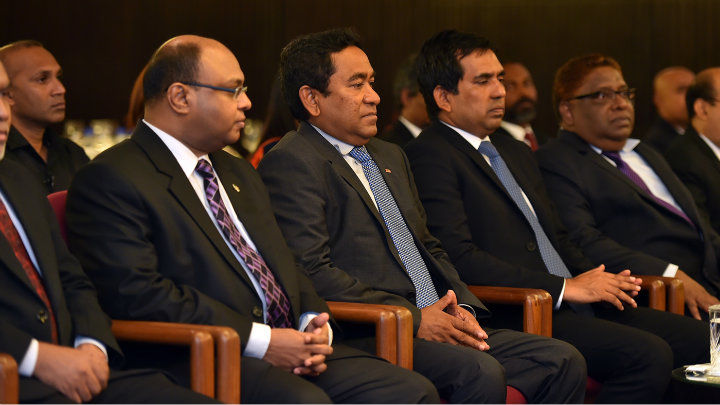Money laundering checks are a burden on small countries, says Yameen
President Abdulla Yameen has described international money-laundering checks as “red tape” that inflicts disproportionate burdens on small economies.

06 Dec 2016, 09:00
President Abdulla Yameen has described international money-laundering checks as “red tape” that imposes a disproportionate burden on small countries.
Speaking Monday at a conference organised by the supreme court, the president said the Maldives lacked full sovereignty over its financial affairs because it was bound by global rules.
He identified bureaucracy by the banks in processing inward remittances, leakage of private information from banks, and the Maldives’ soiled image as challenges to doing business.
The conference “Doing Business in the Maldives – A Judicial Perspective” is aimed at improving the country’s ranking on the World Bank’s Doing Business Index, which placed it at 135 out of 190.
Become a member
Get full access to our archive and personalise your experience.
Already a member?
Discussion
No comments yet. Be the first to share your thoughts!
No comments yet. Be the first to join the conversation!
Join the Conversation
Sign in to share your thoughts under an alias and take part in the discussion. Independent journalism thrives on open, respectful debate — your voice matters.




